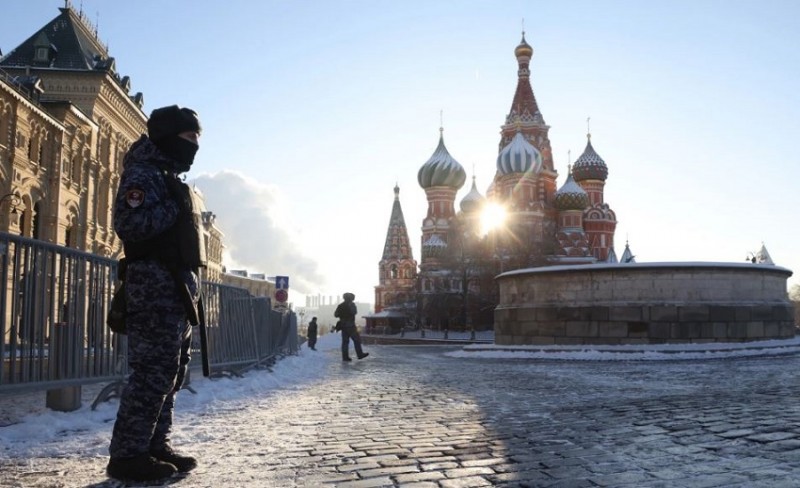
The Islamic State group has taken responsibility for the recent attack in Moscow, while Kremlin officials continue to deflect blame onto others.
Prior to the full extent of the tragedy at a Moscow concert hall being known, Russian authorities quickly tied the incident to the conflict with Ukraine and broader tensions with the West. Dmitry Medvedev, former president and current deputy chair of the Kremlin's security council, suggested a connection to "terrorists of the Kyiv regime" just ninety minutes after initial reports surfaced.
Despite the Islamic State's claim, the Kremlin persists in promoting its own narrative, filled with unsupported allegations and far-fetched conspiracy theories circulated on social media platforms.
President Vladimir Putin labeled the attackers as "radical Islamists" and framed the incident as part of a broader conflict with those opposed to Russia since 2014, specifically referencing the situation in Ukraine and the annexation of Crimea.
Nina Khrushcheva, an expert in international affairs, criticized these narratives as attempts to distract from the failure to prevent the attack while galvanizing support for the ongoing war effort, which has seen significant loss of life.
Disinformation surrounding the attack has made it challenging to discern the truth, with various false claims circulating in the aftermath.
Blaming Ukraine:
Russian media initially aired a video implicating Ukraine, which was later debunked as a manipulated deepfake. Attempts to tie the attack to Ukraine continued online, with some falsely claiming Ukrainian involvement in other alleged incidents around Moscow.
In response, Ukraine's Foreign Ministry accused Russia of stoking anti-Ukrainian sentiments to bolster support for its aggression against Ukraine.
Claims of Western Involvement:
Suspicions were also cast on the United States, with some suggesting American intelligence agencies had prior knowledge of the attack. However, U.S. officials had issued a public warning beforehand and shared information with Russian counterparts.
Russian officials circulated fake posts online alleging Western or Ukrainian involvement, aiming to justify escalated military action in Ukraine.
The Russian False Flag Theory:
Some outside Russia speculated that the Kremlin orchestrated the attack to garner support for its Ukrainian campaign. This theory gained traction despite lacking evidence.
Identifying the Wrong Terrorists:
Images circulated online falsely identifying individuals as the attackers, further complicating the narrative surrounding the incident.
The dissemination of false information, particularly on platforms like Telegram and X, underscores the challenge of discerning truth from fiction in the digital age.
The aftermath of the Moscow attack highlights the prevalence of disinformation and the complexities of navigating geopolitical tensions in the modern era.
Islamic State Releases Photo and Footage of Moscow Attack, 133 people died in Terror attack